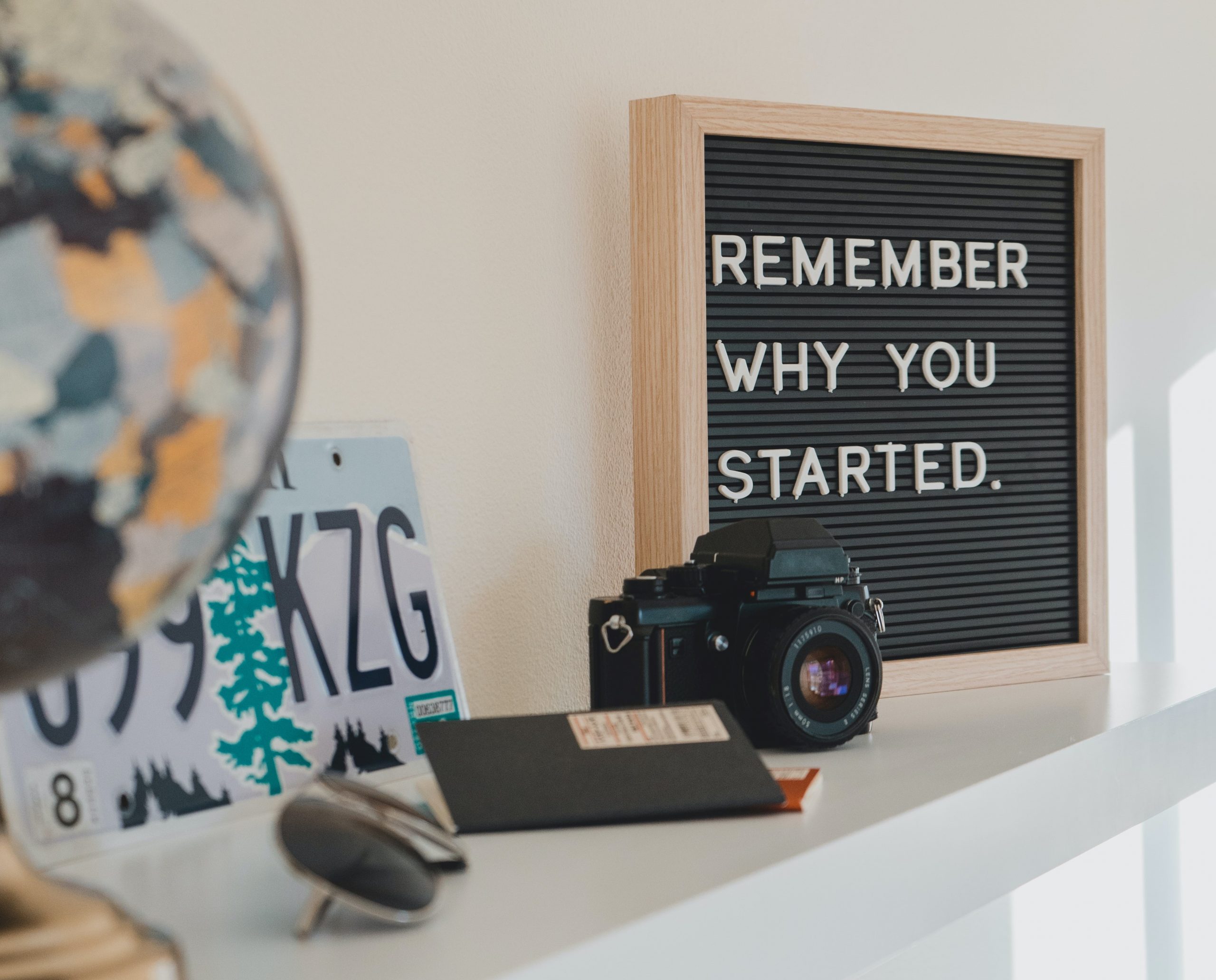We all deal with distractions, every single day. There is a saying, that we underestimate what we can do in a month and we overestimate what we can do in a day. Why is that?
Because we massively underestimate all of the distractions and interruptions that will take our attention.
You will never be left in a vacuum to complete all of your tasks. Not only will you have physical world distractions, such as other people, popping into your orbit. You will also have your own mind-chatter to tune out.
Look Over Here!
Some distractions are spontaneous and unintentional. The neighbours next door may not have realised their lawnmower or TV was quite so loud, and that it was messing with your concentration.
Some distractions are designed to pull you towards them. The notifications on your phone are purposely trying to grab your attention. They will not stop until you tell them to.
Some distractions sit inside your own brain. As you start one task, your mind keeps processing other thoughts in the background, telling you “remember” or “have you done that?”
Distractions simply become more data that your brain has to process. Consequently, when there is too much data in there, vying for your attention, your brain might feel like it’s shutting down and that tasks take longer.
The good news is that there are ways to navigate distractions and become more productive. The next time you are feeling overwhelmed, try some of these solutions:
Dive into a Daybook
A daybook is a notebook or journal, inside which you can capture all the thoughts pinging around your mind. Our brains are not designed to hold every bit of information all at once. If they are overloaded, they start to leak. It’s important to have a place where you can siphon off your thoughts, to know they are safe and that you can return to them later. By simply jotting down the tasks or ideas that pop into your mind, you acknowledge them and give them a place where you can find them again easily. Importantly, they are then out of your head, giving you extra space to think and focus.
Daybooks can also be night-books. Keep your notebook by your bed as you sleep. If you wake up with thoughts whirring around in your head, write them into the pages and then let your head return to your pillow. In the morning, you can read back through your notes and decide whether they are still as important as they seemed at midnight.
Not a pen-to-paper person? Explore the wealth of apps available, such as Evernote or even the basic Notes app that probably came with your phone.
Distance Yourself
If you are feeling very distracted, try to step away and create physical space away from the source of the distractions for a while. If social media is calling to you, put your phone in a lock box for an hour. If YouTube keeps showing you videos that are leading you down a rabbit hole, take a break from your computer screen.
Disrupt the interruption
Creating distance can be as simple as going to put the kettle on, or having a five-minute walk around the block or the office. In those few minutes away, your brain will have a moment to reset and come back fresh to the situation.
Dream a Little Dream
Daydreaming, in work terms, is often seen negatively. The essence of it – letting your mind settle, wander and rest – is actually very helpful to practice.
You may like to think of it as meditation or mindfulness. It may be as simple as taking a few deep breaths to calm your mind. A helpful visual example is to imagine you have an enormous balloon right in your lower stomach. As you breathe in, imagine that balloon slowly inflating. As you breathe out, imagine the balloon slowly deflating.
While walking away gives you a physical separation, accessing a dream state gives you an emotional separation from the distractions. Once you are in a calmer state you become much more resilient and able to problem-solve.
Need a little help finding the calm? There are apps for your phone which can offer ideas and meditative guidance. Many wearables (such as Fitbits) will have breathing exercise options included.
Diarise & Do
Now you have ways to ensure tasks and ideas are not forgotten, it’s time to book a slot for actioning them.
Find a calendar – on the wall, in your phone, in your diary – and allocate your tasks to particular dates. By giving a task a date, you are not only committing yourself to doing it, but you are also giving yourself permission to stop thinking about it now.
Make it a habit to diarise ‘not today’ tasks for future days. You will create more space for yourself in the present, and worry less about dropping the ball later.
Delegation’s What You Need
It can be hard to ask for help, but knowing when you can pass a task on is a useful skill. It’s not about dodging work, but about managing your time more efficiently and utilising other people’s talents to gain the best result.
The key is that once you have delegated a task, you must let it go. Don’t sit and worry about whether or not it will get done. Trust that your team mate is dealing with it.
Save your precious brain-space from worrying by diarising a catch-up with your colleague in a week or so. You’ll be able to check in with them then to see how the task is going, and until then it’s not your problem. Instead of micro-managing them at every turn, give them – and thereby yourself – more space to be productive.
Need some Support?
While some of the above solutions will feel more natural to do, others will be harder. Each of us have roadblocks. Perhaps you are someone who hates asking for help, because you want to do everything yourself? Or maybe you find diarising difficult?
The good news is that all of the above can be learned, practised and improved. Having a coach or a mentor can be extremely helpful, because when you are running into problems, they can support you in figuring out why.
Coaching sessions help you to organise the muddle of things in your head and get them lined up neater. When I asked one of my earliest clients to describe the coaching work that we did, he said “I fire a whole load of planes into the sky. You get them flying in formation and landing safely”. It was a great way of putting it.
You are the pilot. Your coach is air traffic control, sitting there with the radar, offering insight and advice.
If you are struggling with distraction, and need some support, reach out to me – let’s book a session into the diary!






